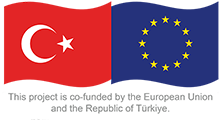“Increasing Quality of and Access to Early Childhood Education Services” supported formal early childhood education services in Ministry of National Education schools and non-formal alternative flexible models, such as playrooms and community-based interventions. The Ministry of National Education and UNICEF work to construct quality container classrooms to accommodate more children.
With the Project, container classrooms with two classrooms are being set up in order to meet the demand especially in regions with limited physical space and to provide more children with access to education. In these classrooms, all of the furniture, equipment, and early learning materials are provided by the Project.
To ensure that children benefit from early childhood education services, it is critically important to have a quality preschool education programme with a relevant curriculum and education materials. Within the scope of the Project; The 2013 Preschool Education Programme has been revised to reflect best practices in early childhood education. More than 10,000 preschool teachers will be trained on the implementation of the revised programme. The Project aims to revise the ECE quality standards to improve learning environments more effective.
The Project will support policy and legislative updates and the expansion of early childhood education services. In addition, as stipulated in the 11st Presidency Development Plan, preschool education for 5 years will be made compulsory in order to ensure that all children receive at least one year of preschool education. In this context, a comprehensive ECE investment case research will be conducted on finance and human resources that will be needed to make preschool education compulsory and the study findings will provide important evidence for policy improvement.






